
Nov 23, 2020 | Economic & Entrepreneurial Vitality, Education, Staying on Top, UpstateVibe365
 Upstate SC Alliance launches regional gateway to technical training programs
Upstate SC Alliance launches regional gateway to technical training programs
Although the coronavirus pandemic has slowed some areas of the economy, within many sectors, businesses continue to grow. A new Upstate initiative highlights those sectors and seeks to connect unemployed or underemployed individuals with short-term training programs that can place them in an in-demand career.
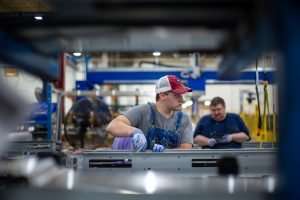 The platform, Skill Up, is a one-stop shop for individuals to explore the earning potential, projected growth, and training programs available for an array of in-demand careers that can be obtained with 12 months or less of technical training. In many cases, financial support is available for these programs.
The platform, Skill Up, is a one-stop shop for individuals to explore the earning potential, projected growth, and training programs available for an array of in-demand careers that can be obtained with 12 months or less of technical training. In many cases, financial support is available for these programs.
Occupations on display range from information technology specialist to pharmacy technician to commercial truck driver — and, among the in-demand occupations featured on the site, there have been 46,899 job postings in the last 12 months, with an average earning potential for in-demand careers of $72,037.
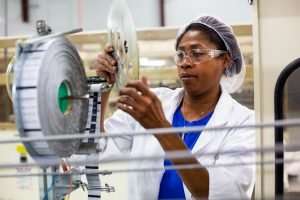 The platform was created by the Upstate SC Alliance in partnership with the Upstate’s technical colleges: Greenville Technical College, Tri-County Technical College, Spartanburg Community College and Piedmont Technical College.
The platform was created by the Upstate SC Alliance in partnership with the Upstate’s technical colleges: Greenville Technical College, Tri-County Technical College, Spartanburg Community College and Piedmont Technical College.
“Our goal is to inspire individuals to acquire new skills for better paying, more resilient in-demand jobs and connect people with programs available at the Upstate’s technical colleges that can launch their careers,” says Upstate SC Alliance President & CEO John Lummus.
 The site emphasizes training programs that can be completed in between two and 12 months, informed by Strada Education Network research.
The site emphasizes training programs that can be completed in between two and 12 months, informed by Strada Education Network research.
Strada finds that millions of American adults are aspiring learners, though two-thirds of those considering enrolling in education prefer non-degree pathways.
What’s more: fewer than one in three adults without degrees say they understand the available career pathways, valuable skills, and details about potential education programs “very well.”
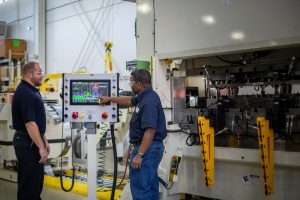 Skill Up is an extension of the Move Upstate SC website and brand, which were launched in 2019 to attract individuals to professional jobs in the Upstate.
Skill Up is an extension of the Move Upstate SC website and brand, which were launched in 2019 to attract individuals to professional jobs in the Upstate.
“The goal of Move Up has always been to connect employers and talent. And, the pandemic has presented an opportunity to address the skills gap by shining a light on those sectors that have remained resilient,” Lummus adds.
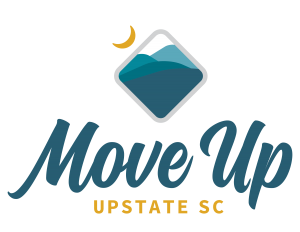 “Skill Up recognizes that the pandemic’s challenges may present an opportunity for some individuals to pursue new avenues. From hands-on manufacturing roles to network configuration to patient support, these careers have staying power and play an important role in our community.”
“Skill Up recognizes that the pandemic’s challenges may present an opportunity for some individuals to pursue new avenues. From hands-on manufacturing roles to network configuration to patient support, these careers have staying power and play an important role in our community.”
Explore Skill Up here: www.skillupsc.com
See more on Move Up here: https://moveupstatesc.com/

Nov 20, 2020 | Staying on Top, UpstateVibe365
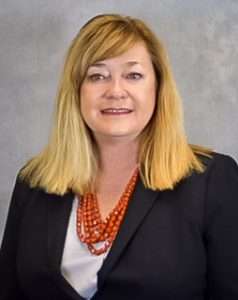
Myra Reece, Director of Environmental Affairs, SC DHEC
Myra Reece, Director of Environmental Affairs, SC DHEC
You can watch the full presentation here.
Thank you all individually and collectively as leaders across the Upstate fighting the spread of COVID19. Something this big is going to take each one of us to minimize the spread.
Six Upstate counties are currently in the COVID red zone and all except one SC county are trending upward.
Consider hosting a free, drive-through testing site.
Public Health/Environmental Affairs are linked in SC with the Public Health team leading the way in case investigations, closely watching data, designing new IT tech, and are still very focused on providing essential services like clean water, clean air, cleaning up contamination areas, etc.
DHEC set up a Business Assistance Office to cover the economic crisis, maintain safety requirements, environmental controls. A line of communication was developed to maintain compliance and assist with Accelerate SC.
DHEC has focused on environmental justice communities around the state with support for others like Michelin who has donated up to 100,000 masks. A lot of our community members are at greater risk because of where they work (essential workers, etc.) but there are so many reasons why communities might be at risk/be disproportionally affected by COVID.
Fran Marshall, Director of the Office of Applied Science and Community Engagement
If 80% of people wore masks for 80 days, the virus would be virtually eradicated.
Distribution of the vaccine will be a long, tedious, and frustrating process, so please mask up.
County Updates:
Anderson: Neil Paul, Executive Director, Anderson Convention & Visitors Bureau
Lake Hartwell is a tremendous resource which lends itself to outdoor recreation and tourism activities like fishing tournaments, bringing over 5,000 room nights to Anderson since the start of August.
With federal grant money, facilities upgrades and updates are happening, including an amphitheater and dock space are being made to Green Pond landing.
Working with City of Anderson to improve way finding.
Greenville: Dianna Gracely, City Manager, City of Simpsonville
Simpsonville growth booming despite the pandemic, including three assisted living permits, five multifamily projects (over 1K new housing units), and nine single family projects.
West Georgia Road is the next commercial road for development in Simpsonville.
Hospitality tax revenue will be used to update downtown with a plan to incorporate a festival street, streetscaping, fix traffic issues, and make it pedestrian safe.
Work on the Swamp Rabbit Trail is continuing.
Simpsonville has been rebranded with new signage and landscaping.
An arts center is be developed in an old school.
Downtown development includes new building $4M office, restaurant, light manufacturing, outdoor gathering space.
Mayor Senn, Mayor, City of Laurens
Recently dedicated Back Street Park: nod to city’s African American entrepreneurs.
Held a ribbon cutting downtown of a mural (postcard from Laurens).
A 140 home housing development and 1K homes on the way.
Sutter Sticks is bringing 80 new jobs; we have 4.8% unemployment and many new jobs coming.
We passed Capital Sales tax referendum, funds will be used for construction downtown and on Swamp Rabbit Trail.
Restaurant numbers are up 30% due to people staying close to home vs. traveling to eat.

Nov 19, 2020 | Community Vibrancy, Staying on Top, UpstateVibe365
 On Wednesday, November 18th, Ten at the Top hosted the Celebrating Upstate Unsung Heroes Virtual Event in place of their annual Celebrating Successes Luncheon. This event focused on honoring the many individuals throughout the Upstate who have devoted their time and selflessly served their communities during the COVID-19 pandemic.
On Wednesday, November 18th, Ten at the Top hosted the Celebrating Upstate Unsung Heroes Virtual Event in place of their annual Celebrating Successes Luncheon. This event focused on honoring the many individuals throughout the Upstate who have devoted their time and selflessly served their communities during the COVID-19 pandemic.
Over 130 nominees were recognized during the event as “Upstate Unsung Heroes.” You can read the full list here.
One individual per county was selected to receive special recognition during the event. Below are the 10 county representatives that were present for this special presentation:
Abbeville: Ethan Cornick – Dreams with Open Arms, Volunteer
Anderson: David Baker – Anderson County, Emergency Services Director
Cherokee: Dr. Carol McFadden – Know(2) Neighborhood Association, Volunteer Director Greenville: Marina Lewis – Mauldin High School, Social Worker
Greenwood: George McKinney – Greenwood County, Emergency Management Director
Laurens: Joey Avery – Laurens County, Emergency Management Director
Oconee: Vanessa Earle – Prisma Health, Community Health Worker
Pickens: Lesa Howard – 5 Point Church Food Pantry, Director
Spartanburg: Charlene Cheeks – Big Brothers, Big Sisters of the Upstate, CEO
Union: Shanna “Nikki” Burgess – SC Works Greater Upstate, Talent Development Specialist Supervisor
“To adapt to these unprecedented times, Ten at the Top felt it was necessary to change both the format and focus of this annual event. We decided to bring the upstate together by recognizing the hundreds of individuals who have remained committed to serving others amidst the many unfortunate circumstances this pandemic has brought our way,” said Dean Hybl, Executive Director of Ten at the Top.
“We hope that our event has not only shown great appreciation to these 132 nominees, but also highlighted the number of heroes we have living amongst us in the 10-county Upstate region that we encounter daily.”
Comprised of public, private and civic leaders across the ten-county Upstate South Carolina Region, Ten at the Top was created to build regional trust and consensus through data-driven research and regular convening of leaders and citizens to address key issues facing the region. Ten at the Top works with regional partners to encourage quality growth and enhance the economic vitality, natural and cultural resources and quality of life for Upstate residents both today and as the region continues to grow. www.tenatthetop.org.

Nov 18, 2020 | Community Vibrancy, Press releases, Staying on Top, Uncategorized, UpstateVibe365

Marina Lewis, Mauldin High School – Social Worker
Written By: Marina Lewis, Mauldin High School – Social Worker
March 13, 2020. Seemed like any other Friday, everyone was ready to get out the doors of Mauldin High and start the weekend. The weekly food pantry backpacks were lined up for students in need to grab on their way out the door. I was busy wrapping up my emails for the week and didn’t get to speak to several of the students. Little did I know that was the last time I would see them pick up their packs for the school year!
The following Monday we were in a state of emergency due to the Coronavirus, schools were closed and in 72 hours teachers converted their classes to eLearning. Everyone was so busy making virtual learning available. All I could think is what in the world could I do? My job as a school social worker is tied to my students being at school! The Backpack program, all the small groups, OnTrack meetings, Mentor program, Social-Emotional Learning trainings, activities, and events all came to a screeching halt.
Quarantine stopped daily living as we knew it but life continued. Our students needed the connection to the school that provided them stability in what was often a very chaotic and unstable home life. That next Friday when our students normally would have picked up their extra food supply for the weekend I knew what I had to do. I needed to bring the food to them. With an amazing co-worker (Kelly Yanity), we packed up the bags and delivered them to our 20 students in need.
As the weeks stretched on and the state was shut down, with support of our Principal, Michael Peake, and the blessing of my husband, my three teenagers packed up the pantry and moved it to our garage. We continued to make weekly supply deliveries to our families in need, as well as new families that were struggling due to the pandemic. Everyone pitched in to assist making our little Mauldin High food pantry not only survive but thrive. Brookwood Church continued to collect donations and PTSA donated all the items from the student school store that was going unused and sponsored a sign-up genius to collect needed household and cleaning supplies. We switched from backpacks to boxes left them at the door to have as little physical contact as possible and followed all COVID protocols.
In the end, it became less about the food being delivered and more about the relationships strengthened and the trust earned. The food became more of an excuse to check in with our students. It wasn’t just for them either. It brought peace to myself and my co-workers being able to lay eyes on them knowing they were OK. It gave me structure and purpose to my quarantine days. Assisting them with all the changes that had been thrown at all of us. Helping them learn to do this eLearning thing. Sharing resources and providing hotspots. They felt heard. They felt seen. I felt relieved. These students gave me more than I could give them, reminding me not to take things for granted. The hugs, the laughs, and the check ins we usually shared throughout the halls and classrooms were missing. We realized the importance of relationships.
 The silver lining of this pandemic is it made us slow down and focus on what is truly essential, connecting with others. Being there for one another, that’s what will get us through. My hope is that through all the changes, grief, and chaos 2020 has brought, that it brought us something greater that can live past this pandemic, gratitude. Gratitude for each and every person that impacts our days. Greenville will get through this stronger by focusing on each other. I am privileged to have the opportunity to continue to serve our students, teachers, and community and will let that be my lasting memory of this pandemic.
The silver lining of this pandemic is it made us slow down and focus on what is truly essential, connecting with others. Being there for one another, that’s what will get us through. My hope is that through all the changes, grief, and chaos 2020 has brought, that it brought us something greater that can live past this pandemic, gratitude. Gratitude for each and every person that impacts our days. Greenville will get through this stronger by focusing on each other. I am privileged to have the opportunity to continue to serve our students, teachers, and community and will let that be my lasting memory of this pandemic.
Ten at the Top recently hosted their Celebrating Upstate Unsung Heroes Virtual Event on Wednesday, November 18th. At this event, they honored 10 county representatives and 130+ additional unsung heroes that have kept the Upstate region alive and well during this pandemic. Click here to view all 132 nominee listings.
The 10 county representatives that were present at the day-of event were:
- Abbeville: Ethan Cornick – Dreams with Open Arms, Volunteer
- Anderson: David Baker – Anderson County, Emergency Services Director
- Cherokee: Carol McFadden – Know(2) Neighborhood Association, Volunteer Director
- Greenville: Marina Lewis – Mauldin High School, Social Worker
- Greenwood: George McKinney – Greenwood County, Emergency Management Director
- Laurens: Joey Avery – Laurens County, Emergency Management Director
- Oconee: Vanessa Earle – Prisma Health, Community Health Worker
- Pickens: Lesa Howard – 5 Point Church Food Pantry, Director
- Spartanburg: Charlene Cheeks – Big Brothers, Big Sisters of the Upstate, CEO
- Union: Shanna “Nikki” Burgess – SC Works Greater Upstate, Talent Development Specialist Supervisor

Nov 17, 2020 | Staying on Top
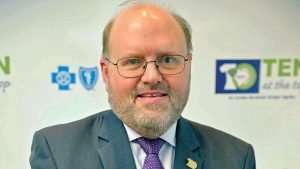
Dean Hybl, Executive Director of Ten at the Top
In a world where technology has made waiting for anything seem antiquated and unnecessary, I think it is fair to say that for most of us instant gratification is not considered a luxury, it is an expectation and necessity. If something can’t be done immediately, then we often will move on until we find something that meets our immediate need, even if it isn’t as good as something that may have taken longer.
Those of us with gray in our beards (and whatever is left of our hair) like to call out the instant gratification need in Millennials and Generation Z, but be honest, even if you are a Baby Boomer or Generation X product, I bet you are guilty of picking a drive thru based on the line or quickly flipping to another web site when the one you were on fails to quickly load.
I have found in my 15 years working with stakeholders on issues of community impact that getting people to withstand the urge for instant gratification and instead dive deeper to identify and work on a more systemic issue can often be an exercise in futility.
On one hand, I get it. Business leaders, elected officials and non-profit leaders often are focused on the most immediate need. They are hearing from customers, clients, constituents and employees about the crisis of the moment and feel pressure to do something quickly to deal with it.
I have often called this the “pothole syndrome”. People want the immediate pothole fixed and often don’t care if there is a big truck headed straight for them.
Now I am all for fixing the potholes. Especially in today’s world where COVID-19, economic disparity and social unrest are impacting millions of Americans, immediate solutions to reduce the burdens must be found and implemented.
However, I believe that around every issue and challenge we have an opportunity and obligation to also look at the systemic causes and identify what long-term strategies might be implemented to not just address the immediate need, but also the root cause of the challenge.
Following the tragic events in Minnesota, Kentucky and other parts of the country earlier this year that have led to protests and questions about the role and authority of law enforcement, Ten at the Top convened a discovery committee of leaders from across the Upstate to look at how we can work collaboratively to create a safer environment for all residents.
The committee has recently released a series of initial recommendations that encourage our law enforcement and community leaders to work collaboratively to create an environment where the lives of all law enforcement members and residents are equally valued.
There are some immediate opportunities, including encouraging law enforcement agencies to hire Diversity & Inclusion Officials (Oconee County was the first in the region to do so earlier this year) and creating a pipeline to encourage more women and people of color to become law enforcement officers.
However, while we would love to be able to wave a magic wand and immediately create a new dynamic where every resident is treated with the same level of opportunity and respect, we know in reality that it will take many years of incremental successes to move our society to the desired outcome.
The same thing can be said for just about every other issue impacting our community, including transportation, poverty, affordable housing, skill training, education and many more.
The reality is that current situations are the result of many years of policy and practice. There are certainly short term “potholes” that we can fix to make an immediate impact, but unless we are also willing to work together to address the long-term and systemic reasons for these challenges, we will never really be able to make them go away.
We must fight the urge to simply look for the instant gratification and instead recognize that having the patience and perseverance to stay engaged for the long haul is the clearest path to lasting success.
You can read the full recommendations of the Ten at the Top Safer Upstate Discovery committee at www.tenatthetop.org.
You can read the full article on Upstate Business Journal here.
Dean Hybl has been the Executive Director of Ten at the Top since January 2010.

Nov 13, 2020 | Staying on Top, UpstateVibe365
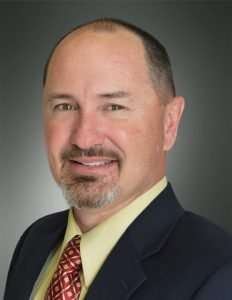
Shannon Sears, WCTEL Director of Commercial Operations
Q: How quickly was your team able to start adjusting their processes to account for the stay at home order?
A: We were able to adjust our processes almost immediately to account for the stay at home order. Within one week, we went from a company that worked entirely from an office for 68 years, to 70% of our workforce working from home. We had equipment on-hand to do this and ordered what else was needed; VPNs were set up at staff homes to continue to take calls and operate as normal. It was a team effort and an “all-hands-on-deck” approach to get our company working remotely. Not only did we attend to our immediate needs, but we also proactively reached out to business members, to see that they had the equipment and connections they needed to allow their employees to function in a remote set-up. We were a key resource in allowing other businesses the option to work from home.
Q: What was the immediate reaction from customers?
A: Customers wanted to be assured that their internet connection was stable and could handle the new demands being placed on it. Having a fiber optic network that is robust enough to handle any increase in demand, gave our customers the peace of mind that their internet service would be there when they need it the most. We also educated the community with work from home tips, CDC Guidelines, computer scams, and other helpful content on a dedicated webpage and through social posts, emails, and blogs. You can view the link here: https://www.wctel.com/covid-19/
Our offices have been closed for walk in traffic and will continue to be closed until further notice, however we have the tools in place to continue to serve our members.
Q: How quickly was your team and customers able to adjust to the new processes?
A: With anything new there is a learning curve, however we were able to accelerate our learning curve in this situation and our members did too. We stopped in-home installations immediately and released instructional videos for self-installation of our services, along with an “install in a box” that included the equipment necessary. The instructions and the videos were very thorough and went through every detail so customers would know exactly what to do. It went surprisingly well; we have a wide age demographic, and all customers were able to self-install smoothly. Once we resumed in-person visits, we released a video describing what precautions our technicians were taking so customers would know firsthand. Prior to scheduling an in-home installation, customers were asked screening questions to ensure the safety of our team. The customers were assured that we were taking sanitary precautions to mitigate exposure to the virus and doing our part to keep both them and our employees safe. We also identified that the community may experience hardships during this time, WCTEL came alongside of its members who were experiencing economic hardship and provided payment options and ancillary plans.
Q: What did your team in the field do to ensure their safety as well as that of your customers?
A: It was our top priority to make our customers and employees feel both comfortable and customers safe. Our team practiced sanitization safety along with health assessment checks (temperature checks) daily. We sanitized all our tools, equipment, supplies, trucks (door handles, steering wheel) and other common surfaces between every service visit. This video shows how we continued sanitization safety once we restarted in-home installations. https://www.youtube.com/watch?v=ax1RpJtYEXg&t=43s
Q: Was there anything that in hindsight you wish you had done immediately?
A: We’re thankful for a proactive board and executive team who were quick to take action and implement new pandemic procedures. I don’t think we would change anything that we did, mainly because we all worked together to accomplish a very specific goal.
 Q: Of the procedures you have enacted, are there any you anticipate becoming your regular practice?
Q: Of the procedures you have enacted, are there any you anticipate becoming your regular practice?
A: Throughout this process we’ve created many efficiencies, productivity has actually increased with our staff working from home and we will consider a hybrid model of office and work from home arrangements. The biggest takeaway may be that our company will never be the same because of this, in a good way. Even though the pandemic is a negative, the changes in our company from this situation have made us stronger and more adaptable. We were impressed with our team’s resilience, positivity, and willingness to do their part. As a telecom we knew that internet was and is an essential service, but now society embraces it as an essential service, placing even greater value on it than before. Schools have also adjusted to hybrid models and WCTEL is proud to enable that with the services we provide.
Q: What is your strategy related to adjusting to the continued pandemic issues over the next six months?
A: We continue to monitor the pandemic internally and externally. We have daily and weekly meetings with staff check-ins. Team health remains a top priority for WCTEL. Team health check-ins, work stress levels and personal stress levels are monitored and taken into consideration. Anxiety is high now with personal stresses, teaching kids from home, working from home, all impacting stress levels. We are in tune with our staff and the social shift. We recognize there are mental health issues when a team is removed from social interaction and we’re providing team resources on a regular basis to address those issues. We review CDC guidelines daily and look to them as an overall resource on the current state of the pandemic. We’ll continue to practice social distancing and sanitizing procedures.
Although our offices will remain closed over the next several months, we will continue to support our members and community by providing reliable services that the community can count on and assist customers with a positive customer experience. We value people by showing genuine care when we interact with them.
 Q: Has there been a positive story or result that you can share?
Q: Has there been a positive story or result that you can share?
A: When the pandemic first started, we reached out to the community and our schools. We helped ensure that local students had access to internet, and low-income areas were served with WiFi Hotspots. Students were able to continue their studies and stay up on their curriculums because of it. During this time, it was of utmost importance for us to serve our community, whether members or not. We wanted to ensure that our community continued to flourish.
Also, we had just connected a local business with hosted business solutions right before the pandemic and because of the integrated phone lines, they were immediately able to work from home and continue their daily operations without a glitch.
In conclusion, I am certain that our journey through this pandemic is not so different from what other companies experienced. We also realize that others had a much more difficult time. In the end I hope that we all learned to work together, grow together, endure together and have a common goal to serve others.

 Upstate SC Alliance launches regional gateway to technical training programs
Upstate SC Alliance launches regional gateway to technical training programs The platform, Skill Up, is a one-stop shop for individuals to explore the earning potential, projected growth, and training programs available for an array of in-demand careers that can be obtained with 12 months or less of technical training. In many cases, financial support is available for these programs.
The platform, Skill Up, is a one-stop shop for individuals to explore the earning potential, projected growth, and training programs available for an array of in-demand careers that can be obtained with 12 months or less of technical training. In many cases, financial support is available for these programs. The platform was created by the Upstate SC Alliance in partnership with the Upstate’s technical colleges: Greenville Technical College, Tri-County Technical College, Spartanburg Community College and Piedmont Technical College.
The platform was created by the Upstate SC Alliance in partnership with the Upstate’s technical colleges: Greenville Technical College, Tri-County Technical College, Spartanburg Community College and Piedmont Technical College. The site emphasizes training programs that can be completed in between two and 12 months, informed by Strada Education Network research.
The site emphasizes training programs that can be completed in between two and 12 months, informed by Strada Education Network research. Skill Up is an extension of the Move Upstate SC website and brand, which were launched in 2019 to attract individuals to professional jobs in the Upstate.
Skill Up is an extension of the Move Upstate SC website and brand, which were launched in 2019 to attract individuals to professional jobs in the Upstate. “Skill Up recognizes that the pandemic’s challenges may present an opportunity for some individuals to pursue new avenues. From hands-on manufacturing roles to network configuration to patient support, these careers have staying power and play an important role in our community.”
“Skill Up recognizes that the pandemic’s challenges may present an opportunity for some individuals to pursue new avenues. From hands-on manufacturing roles to network configuration to patient support, these careers have staying power and play an important role in our community.”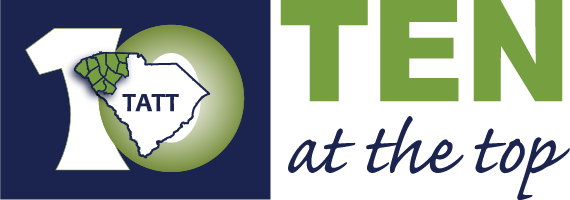



 On Wednesday, November 18th, Ten at the Top hosted the Celebrating Upstate Unsung Heroes Virtual Event in place of their annual Celebrating Successes Luncheon. This event focused on honoring the many individuals throughout the Upstate who have devoted their time and selflessly served their communities during the COVID-19 pandemic.
On Wednesday, November 18th, Ten at the Top hosted the Celebrating Upstate Unsung Heroes Virtual Event in place of their annual Celebrating Successes Luncheon. This event focused on honoring the many individuals throughout the Upstate who have devoted their time and selflessly served their communities during the COVID-19 pandemic.




 Q: Of the procedures you have enacted, are there any you anticipate becoming your regular practice?
Q: Of the procedures you have enacted, are there any you anticipate becoming your regular practice? Q: Has there been a positive story or result that you can share?
Q: Has there been a positive story or result that you can share?